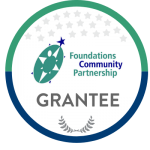






Our Vision
All people have immediate access to high quality behavioral-health related services, provided in a safe, accepting environment.
Our Mission
Strengthening individual, family, and community well-being through accessible, high-quality community-based behavioral health services.
Our Values
We create equitable and easy access to services.
We engage with our clients so our services are adaptive to individualized needs.
We support and develop our staff.
We embrace collaboration.
We are honest and trusted partners.
We provide comprehensive and integrated services.
We listen to the community so our services are responsive to evolving needs.
We demonstrate operational excellence in everything we do.
We build healthy environments that promote healing and recovery.
We work as one Penndel.

Main Center/ Intake: 215.752.1541
Child and Family: 215.757.8611
Intellectual Disabilities: 215.750.9898
Act/ CTT: 215.750.7060
FSP and 919 Durham Rd.: 267.569.1130
Blended Case Management: 267.587.2345
Administrative Offices: 267-587-2300
If this is an emergency, please contact Lenape Valley Crisis at 215-785-9765.
Penndel Mental Health Center (PMHC) complies with applicable Federal civil rights laws and does not discriminate on the basis of race, color, national origin, age, disability, or sex. PMHC does not exclude people or treat them differently because of race, color, national origin, age, disability, or sex.
PMHC provides free aids and services to people with disabilities to communicate effectively with us, such as: qualified sign language interpreters, and written information in other formats (large print, audio, accessible electronic formats, other formats).
PMHC also provides free language services to people whose primary language is not English, such as: qualified interpreters, and information written in other languages
If you need these services, contact you may contact the PMHC intake worker, your assigned staff member or program director, or call 267-587-2300 ext. 1123 for the language assistance voice mailbox.
If you believe that Penndel Mental Health Center has failed to provide these services or discriminated in another way on the basis of race, color, national origin, age, disability, or sex, you can file a grievance with: PMHC’s Corporate Compliance Officer, 919 Durham Road, Penndel, PA 19047, Phone: 267-569-1130, ext. 1913, Fax: 267-569-1148, or e-mail to doberreit@penndelmhc.org. You can file a grievance in person or by mail, fax, or email. If you need help filing a grievance, Doug Oberreit, Corporate Compliance Officer, is available to help you.
You can also file a civil rights complaint with the U.S. Department of Health and Human Services, Office for Civil Rights, electronically through the Office for Civil Rights Complaint Portal, available at https://ocrportal.hhs.gov/ocr/portal/lobby.jsf, or by mail or phone at:
U.S. Department of Health and Human Services
200 Independence Avenue, SW
Room 509F, HHH Building
Washington, D.C. 20201
1-800-368-1019, 800-537-7697 (TDD)
Complaint forms are available at http://www.hhs.gov/ocr/office/file/index.html.
1. (Spanish) ATENCIÓN: si habla español, tiene a su disposición servicios gratuitos de asistencia lingüística. Llame al 267-587-2300 ext. 1123
2. (Russian) ВНИМАНИЕ: Если вы говорите на русском языке, то вам доступны бесплатные услуги перевода. Звоните 267-587-2300 ext. 1123
3. (Chinese) 注意:如果您使用繁體中文,您可以免費獲得語言援助服務。請致電 267-587-2300 ext. 1123。
4. (Vietnamese) CHÚ Ý: Nếu bạn nói Tiếng Việt, có các dịch vụ hỗ trợ ngôn ngữ miễn phí dành cho bạn. Gọi số 267-587-2300 ext. 1123
5. (Arabic) ملحوظة: إذا كنت تتحدث اذكر اللغة، فإن خدمات المساعدة اللغوية تتوافر لك بالمجان. اتصل برقم 267-587-2300 ext. 1123
6. (Nepali) धधधधध ????धधध धधध:धधधधध????धध धधधधध???? धधधधधधधधध भन धधधध????धध ????धधधधध धधधध धधधधधध धधधधधध ????धधधधधध धधधधध धधधधधध छ । धधध धधध धधधधध ध 267-587-2300 ext. 1123 ।
7. (Korean) 주의: 한국어를 사용하시는 경우, 언어 지원 서비스를 무료로 이용하실 수 있습니다. 267-587-2300 ext. 1123
8. (Cambodian, Khmer) ប្រយ័ត្ន៖ បរើសិនជាអ្នកនិយាយ ភាសាខ្មែរ, បសវាជំនួយខ្ននកភាសា បោយមិនគិត្ឈ្នួល គឺអាចមានសំរារ់រំបរើអ្នក។ ចូរ ទូរស័ព្ទ 267-587-2300 ext. 1123។
9. (French) ATTENTION : Si vous parlez français, des services d’aide linguistique vous sont proposés gratuitement. Appelez le 267-587-2300 ext. 1123
10. (Burmese) धधध: धधधधधधधधध(धधध)धधधधधधधधधधध धधधधधधधध धधधधधधधधधधधधधधधधधधधधधधधधधधधधध धधधधध धधधधधधधधधधधधधध 267-587-2300 ext. 1123
11. (Haitian Creole) ATANSYON: Si w pale Kreyòl Ayisyen, gen sèvis èd pou lang ki disponib gratis pou ou. Rele 267-587-2300 ext. 1123
12. (Portuguese) ATENÇÃO: Se fala português, encontram-se disponíveis serviços linguísticos, grátis. Ligue para 267-587-2300 ext. 1123
13. (Bengali) লক্ষ্য করুনঃ যদি আপনি বাাংলা, কথা বলতে পারেন, তাহলে নিঃখরচায় ভাষা সহায়তা পরিষেবা উপলব্ধ আছে। ফোন করুন ১-267-587-2300 ext. 1123।
14. (Albanian) KUJDES: Nëse flitni shqip, për ju ka në dispozicion shërbime të asistencës gjuhësore, pa pagesë. Telefononi në 267-587-2300 ext. 1123
15. (Gujarati) સુચના: જો તમે ગુજરાતી બોલતા હો, તો નન:શુલ્ક ભાષા સહાય સેવાઓ તમારા માટે ઉપલબ્ધ છે. ફોન કરો 267-587-2300 ext. 1123
